Decline Of The Atheist Movement
 From Conservapedia
From Conservapedia Numerous atheists have declared that the "atheist movement is dead" or that it is dying.[2] In 2019, a writer at Freethought Blogs wrote: "Last month I looked at some postmortems of the atheist movement...".[3] See also: Morale of the atheist movement
Division is widespread among atheists (see: Atheist factions). On July 24, 2020, the atheist PZ Myers wrote about atheism: "Deep rifts, ongoing fragmentation, and crumbling reputations seems to be the order of the day in atheism."[4] See also: Atheist organizations and scandals and Atheist scandals
Before the atheist movement died/declined, various atheists attempted to change the public's perception concerning atheism, but they were largely unsuccessful (see: Attempts to positively rebrand atheism and Atheism and public relations).
After the Elevatorgate controversy in 2011 (a controversy involving new atheist Richard Dawkins and feminist Rebecca Watson), which caused a significant rift within the atheism movement, atheist Jen McCreight and the website Atheist Revolution indicated that the atheist movement was essentially dead/destroyed.[5] See also: Atheism and women and Atheism and sexism
On the Atheists for Liberty website the atheist Thomas Sheedy wrote in an article entitled Ten years after Elevatorgate | What we should learn from our past mistakes:
| “ | Over the past eight years, I have seen:
|
” |
In 2017, atheist David Smalley has indicated that leftist/progressive atheists were "killing the atheist movement" through being contentious and divisive (see also: Atheist factions).[7] Smalley indicated that the atheist movement was disintegrating.[8] Former new atheist PZ Myers, who subscribes to progressive politics, says he is no longer a member of the atheist movement.[9]
In terms of politics and atheist infighting, there is friction between right-wing atheists (and right of center atheists) and secular leftist. See: Atheism and politics and Western atheism, schisms and political polarization
The website Atheism and the City wrote about the 2018 cancellation of the first major atheist conference to be held in New York City:
| “ | But none of this is going to happen now because the event has just been canceled. The reasons why are complicated, but it started out difficult enough. The atheist community has splintered into a million shards in recent years. There are the atheist feminists and the atheist anti-feminists, the social justice warrior atheists and the anti-social justice warrior atheists. The pro-PC atheists and the anti-PC atheists. There are pro-Trump atheists and anti pro-Trump atheists. Atheists are split over gamergate, elevatorgate, whether we should organize, or whether we should even call ourselves atheists at all. The divisions go on and on.[10] | ” |
In 2018, the atheist PZ Myers quotes an atheist activist who declares: "It’s quite depressing that movement Atheism has turned into such a joke. I valued it so much once."[11] Furthermore, Myers says the atheist movement is in "shambles" and this is "quite depressing" for him.[12]
The atheist activist Hemant Mehta argues that there never was an atheist movement and that people who wanted their to be an atheist movement wrongly assumed "there’s some list of beliefs everyone has to subscribe to." (See also: Schools of atheist thought)[13] Similarly, a blogger at Freethought Blogs indicates: "To be honest, I never saw "atheism” as much of a “movement” as an uneasy coalition, which may, in fact, now be unraveling."[14]
The atheist movement saw a number of setbacks during the latter portion of the 20th century and beyond in terms of historical events/trends (See: Causes of desecularization). As a result, it has lost a considerable amount of confidence (see also: Atheists and the endurance of religion).
Atheist organizations have experienced large drops in donations to their organizations (see: Atheist organizations and fundraising).
Contents
- 1 Decline of New Atheism
- 2 Decline of the secular left
- 3 Atheism is in decline in terms of its global market share
- 4 Western World areas with stagnant secularization rates
- 5 Decline of internet atheism
- 6 Poor international cooperation among atheists
- 7 European atheist Jürgen Habermas
- 8 Atheist Jacques Berlinerblau
- 9 YouTube atheist Thunderf00t
- 10 Atheist Joshua Kelly
- 11 Atheist Revolution on stagnation in the atheist movement
- 12 Seth Andrews on atheist activists dropping out of public atheism
- 13 Decline of the Sunday Assembly ("atheist church") movement
- 14 Atheist philosopher John Gray on what scares the New Atheists
- 15 Atheist philosopher John Gray's review of The Twilight of Atheism
- 16 Atheist Eddie Tabash
- 17 Eric Kaufmann: Secularism is exhausted and unconfident
- 18 Atheist PZ Myers
- 19 Atheist vlogger Aron Ra
- 20 Blair Scott about atheist infighting with the atheist movement
- 21 Atheist David Smalley on the atheist movement and its infighting
- 22 The day Elevatorgate occurred has been called the day the atheist movement died
- 23 Atheist organizations and fundraising difficulties
- 23.1 Atheist activist Lee Moore: Donations to American atheist organizations are down due to infighting within the atheist movement
- 23.2 Atheist Hemant Mehta on fundraising from fellow nonbelievers
- 23.3 Canadian atheist activist Pat O'Brien on the difficulty of atheist fundraising
- 23.4 David Gorski's complaint about atheist nonprofits
- 23.5 Secular Student Alliance report of fundraising problems
- 23.6 Inside Philanthropy website commentary atheist philanthropy related to universities
- 23.7 Atheist organizations and scandals
- 24 Australian atheist movement and the cancellation of 2018 Global Atheist Conference
- 25 David Silverman scandal
- 26 Atheist Francois Tremblay
- 27 Atheist Martin S. Pribble
- 28 2019 Freethought Blogs commentary on the atheist movement
- 29 Atheist movement likened to a sinking ship
- 30 Quotes
- 31 See also
- 32 External links
- 33 Notes
Decline of New Atheism[edit]
See also: Decline of New Atheism and Decline of militant atheism in the West

New Atheism is a form of militant atheism in terms of its rhetoric.
The term New Atheism, which first appeared in the November 2006 edition of Wired magazine, is frequently applied to a movement spawned by a series of six best-selling books by five authors that appeared in the period between 2004–2008. These authors include Richard Dawkins, Christopher Hitchens, Sam Harris, Daniel Dennett and Victor J. Stenger.[16]
Theo Hobson wrote in The Spectator in 2013:
| “ | The atheist spring that began just over a decade ago is over, thank God. Richard Dawkins is now seen by many, even many non-believers, as a joke figure...
Atheism is still with us. But the movement that threatened to form has petered out. Crucially, atheism’s younger advocates are reluctant to compete for the role of Dawkins’s disciple. They are more likely to bemoan the new atheist approach and call for large injections of nuance. A good example is the pop-philosopher Julian Baggini. He is a stalwart atheist who likes a bit of a scrap with believers, but he’s also able to admit that religion has its virtues, that humanism needs to learn from it. For example, he has observed that a sense of gratitude is problematically lacking in secular culture, and suggested that humanists should consider ritual practices such as fasting.[17] |
” |
Decline of the secular left[edit]
See also: Decline of the secular left and Atheism and politics
Atheist Dr. Gordon Stein wrote: "Atheism has long ceased to be a rare and oft-ignored philosophical outlook...It has transformed itself into an active political programme with clear objectives which, though they vary from state to state, unequivocally include the elimination of state religion, religious education, and the enshrinement of scientism."[18]
Atheists commonly use the political realm to advance their atheistic ideology (see: Political activities of atheists).
Historically, atheists have screwed towards the left side of the political aisle (see: Secular left).[19][20][21][22][23] However, the secular right has been growing within the atheist population and this is partly due to the alt-right movement.
Within Europe and China, there is a growing threat to secular leftism (see: Decline of the secular left). In addition, within the atheist movement there is increased friction due to political polarization with the atheist population (see: Western atheism, schisms and political polarization).
In 2017, the American atheist PZ Myers, quoting fellow leftist Alex Nichols, wrote: "...the growing popularity of jibes associating outspoken atheists with fedoras, neckbeards, and virginity, led to an exodus of liberals and leftists from the “atheist” tent. Those who remained for the most part lacked in social skills and self-awareness, and the results were disastrous."[24]
At the same time, Myers has been criticized for his divisiveness and poor social skills. In April 2015, Atheist Ireland announced, "Atheist Ireland is publicly dissociating itself from the hurtful and dehumanising, hateful and violent, unjust and defamatory rhetoric of the atheist blogger PZ Myers."[25] The atheist biologist Massimo Pigliucci said of Myers, "one cannot conclude this parade without mentioning P.Z. Myers, who has risen to fame because of a blog where the level of nastiness (both by the host and by his readers) is rarely matched anywhere else on the Internet...".[26]
According to an international study done by William Bainbridge, atheism is frequent among people whose interpersonal social obligations are weak and is also linked to lower fertility rates in advanced industrial nations (See also: Atheism and fertility rates).[27] See also: Atheism and social skills
Donald Trump's election and the secular left[edit]
See also: American atheism and United States, irreligion vs. religion and demographics and Secular leftists and psychogenic illness and David Silverman's speech at the 2018 American Atheists convention
The election of President Donald Trump in 2016 was a significant blow to secular leftists (see: Donald Trump and American atheists).
The Religion News Service reported:
| “ | For the last decade, atheists, humanists and others secularists have worked hard to organize a “secular vote” that would counter the political clout of the religious right.
President-elect Donald J. Trump’s victory dealt that movement a body blow when he garnered 81 percent of the white evangelical vote and 60 percent of the white Catholic vote. Mormons, too, voted overwhelmingly for Trump. Despite Trump’s not being a particularly religious person, his platform was seen as anti-secular in many atheist and humanist circles. He said he would appoint religiously conservative Supreme Court justices, ban Muslim immigrants, favor Christianity and repeal the Johnson Amendment, which prohibits certain tax-exempt organizations from endorsing political candidates — issues antithetical to organized atheism and humanism.[28] |
” |
At the 2018 American Atheists convention, the ex-president of the American Atheists organization David Silverman declared:
| “ | It is a hard time to be an atheist activist. This has affected us. And it has affected our community...
...it has really affected us. We are suffering a level of defeatism that I have never seen before... We feel the loss. And we feel like we have lost. We feel like we lost the election... We see this cascade of attack coming down at us over and over from all different directions and we feel like it's over. I have heard so many times it makes me sick. It makes me sad. It feels like we lost. The apathy that follows. It doesn't matter. We can't win anyways. It's useless to fight. This apathy is infecting us. It's hurting us. And people are reacting to each other now. And so that is causing a division. Lots and lots of division in our movement. Hard, bad division... And that has resulted in a splintering and factioning of the movement that I have never seen before and none of us have. In other words, we're in a bad situation and it's getting worse.[29] |
” |
The U.S. Supreme Court Justice Brett Kavanaugh, who was appointed by Trump, is a judge who has ruled in favor of religious liberty in his past decisions.[30] U.S. Supreme Court Justice Neil Gorsuch, who was also nominated to the court by Trump, gave a favorable ruling in the Hobby Lobby case in respect to religious liberty.[31] See also: Morale of the atheist movement
[edit]
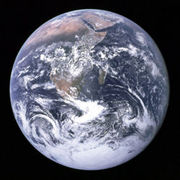
See also: Global atheism statistics and Global atheism and Desecularization
On December 23, 2012, Kaufmann wrote:
| “ | I argue that 97% of the world's population growth is taking place in the developing world, where 95% of people are religious.
On the other hand, the secular West and East Asia has very low fertility and a rapidly aging population... In the coming decades, the developed world's demand for workers to pay its pensions and work in its service sector will soar alongside the booming supply of young people in the third world. Ergo, we can expect significant immigration to the secular West which will import religious revival on the back of ethnic change. In addition, those with religious beliefs tend to have higher birth rates than the secular population, with fundamentalists having far larger families. The epicentre of these trends will be in immigration gateway cities like New York (a third white), Amsterdam (half Dutch), Los Angeles (28% white), and London, 45% white British. [33] |
” |
Kaufmann told a secular audience in Australia: "The trends that are happening worldwide inevitably in an age of globalization are going to affect us."[34]
Atheism is in decline worldwide, with the number of atheists falling from 4.5% of the world’s population in 1970 to 2.0% in 2010 and projected to drop to 1.8% by 2020.[35] See: Global atheism statistics and Desecularization
In 2012, the CSGC reported that every day there are 800 less atheists per day, 1,100 less non-religious (agnostic) people per day and 83,000 more people professing to be Christians per day.[36][37]
In 2011, the American Spectator declared: "The report estimates about 80,000 new Christians every day, 79,000 new Muslims every day, and 300 fewer atheists every day. These atheists are presumably disproportionately represented in the West, while religion is thriving in the Global South, where charismatic Christianity is exploding."[38]
Western World areas with stagnant secularization rates[edit]
See also: Western World areas with stagnant secularization rates
A significant problem atheist activists as far as the propagation of atheism is that secularization rates are now zero in a significant amount of Western developed countries (see: Western World areas with stagnant secularization rates).
United States[edit]
See also: American atheism
In June 2016, American Interest reported about American atheism: "First of all, religious belief is still very powerful and widespread, and there is nothing inevitable about its decline. In fact, the proportion of people who say they believe in God actually ticked modestly upward, from 86 percent to 89 percent, since Gallup last asked the question in 2014."[39]
Ineffectualness of the American secular movement[edit]
See also: American atheism
A speaker in the atheist panel discussion "Where do we go from here?" at Reason in the Rock 2013 declared: "We are still culturally and politically marginal. We still don't have very much influence... We are ineffective."[40]
British atheism/nonreligion[edit]
See also: British atheism
The Guardian published an article in 2017 entitled Nearly 50% are of no religion – but has UK hit ‘peak secular’? which declared:
| “ | But, Bullivant told the Observer that the “growth of no religion may have stalled”. After consistent decline, in the past few years the proportion of nones appears to have stabilised. “Younger people tend to be more non-religious, so you’d expect it to keep going – but it hasn’t. The steady growth of non-Christian religions is a contributing factor, but I wonder if everyone who is going to give up their Anglican affiliation has done so by now? We’ve seen a vast shedding of nominal Christianity, and perhaps it’s now down to its hardcore.[41] | ” |
France and Protestant Europe[edit]
See also: European desecularization in the 21st century and French atheism
In April 2010, Eric Kaufmann declared "the rate of secularisation has flattened to zero in most of Protestant Europe and France."[42]
Decline of internet atheism[edit]
Poor international cooperation among atheists[edit]
See also: Atheism and international cooperation among atheists
In recent years, international cooperation among atheists has been low (see: Atheism and international cooperation among atheists).
European atheist Jürgen Habermas[edit]
Jürgen Habermas is a prominent German sociologist and philosopher. Habermas describes himself as a "a methodical atheist".[43]
In a 2006 essay, Habermas wrote: “secular citizens in Europe must learn to live, the sooner the better, in a post-secular society and in so doing they will be following the example of religious citizens, who have already come to terms with the ethical expectations of democratic citizenship. So far secular citizens have not been expected to make a similar effort.”[44]
Atheist Jacques Berlinerblau[edit]
In 2011, Georgetown University professor and atheist Jacques Berlinerblau declared: "The Golden Age of Secularism has passed."[45]
YouTube atheist Thunderf00t[edit]
See also: Atheist conferences and Atheism and apathy

YouTube atheist Thunderfoot said about the atheist movement after the Reason Rally 2016 had a very low turnout:
| “ | I'm not sure there is anything in this movement worth saving. Hitchens is dead. Dawkins simply doesn't have the energy for this sort of thing anymore. Harris went his own way. And Dennett just kind of blended into the background. So what do you think when the largest gathering of the nonreligious in history pulls in... I don't know. Maybe 2,000 people. Is there anything worth saving?[46] | ” |
In recent times, the number of people attending atheist conferences has grown smaller.[47][48][49] Atheist David Smalley wrote: "And we wonder why we’re losing elections, losing funding, and our conferences are getting smaller."[50]
Atheist Joshua Kelly[edit]
See also: Decline of militant atheism in the West
In 2015, the atheist author Joshua Kelly wrote:
| “ | ...since the death of Hitchens: angry atheism lost its most charismatic champion. Call it what you like: New Atheism, fire-brand atheism, etc., had a surge with the Four Horsemen in the middle of the last decade and in the last four years has generally peetered out to a kind that is more docile, politically correct, and even apologetic.[51] | ” |
Atheist Revolution on stagnation in the atheist movement[edit]
See also: Atheist apologetics
An atheist at the website Atheist Revolution declared:
| “ | I should note that doubts and feelings of disillusionment are nothing new for me. In looking back over some old posts, I can see them emerging in late 2010. I noted the stagnation in our movement as a source of frustration.[52] | ” |
In an Atheist Revolution article entitled Is the atheist movement really moving? an atheist declares:
| “ | ...[atheists] can can take virtually any suggestion anyone comes up with and shred it into oblivion without breaking a sweat. But when we offer something we think represents an improvement, it meets the same fate. Are we moving closer to any sort of action..?[53] | ” |
Seth Andrews on atheist activists dropping out of public atheism[edit]
In 2017, the atheist activist Seth Andrews declared about the atheist activist dropping out of public atheism:
| “ | You know lately when I look around on social media and in the media in general really. I see these proclamations. Proclamations that the atheist movement is on life support. It's dying. It's probably beyond saving.
Now I know some people out there are very weary of all the public infighting and the squabbling and the division and just the general nastiness out there between various camps. And I totally get that. I totally get it. Some people draw a big circle around New Atheism... And they declare New Atheism is dead or it's dying or irrelevant or whatever... As an atheist activist myself, I can understand myself why some activists have just left the party... They just got tired of it. All the politics and the posturing and the trolls and the bad faith operators out there. They have seen first hand that atheists are not immune to scandal, to ugliness to irrationality. To this unhealthy rage.[54][55] |
” |
David Silverman declares he is a former atheist activist[edit]
See also: David Silverman's loss of public influence

Decline of the Sunday Assembly ("atheist church") movement[edit]
See also: Sunday Assembly
The Atlantic reported about the Sunday Assembly ("atheist church") movement: "Sunday Assembly has reported a significant loss in total attendees over the past few years—from about 5,000 monthly attendees in 2016 to about 3,500 in 2018. The number of chapters is down from 70 three years ago to about 40 this year."[56]
Atheist philosopher John Gray on what scares the New Atheists[edit]
See also: Desecularization and Global atheism

John Gray is an English political philosopher and author who focuses in the areas of analytic philosophy and the history of ideas. Gray retired as School Professor of European Thought at the London School of Economics and Political Science. Gray is an atheist who is critical of New Atheism.[57]
Gray in his Guardian article entitled What scares the new atheists? wrote:
| “ | The rise of violent jihadism is only the most obvious example of a rejection of secular life. Jihadist thinking comes in numerous varieties, mixing strands from 20th century ideologies, such as Nazism and Leninism, with elements deriving from the 18th century Wahhabist Islamic fundamentalist movement. What all Islamist movements have in common is a categorical rejection of any secular realm. But the ongoing reversal in secularisation is not a peculiarly Islamic phenomenon.
The resurgence of religion is a worldwide development. Russian Orthodoxy is stronger than it has been for over a century, while China is the scene of a reawakening of its indigenous faiths and of underground movements that could make it the largest Christian country in the world by the end of this century. Despite tentative shifts in opinion that have been hailed as evidence it is becoming less pious, the US remains massively and pervasively religious – it’s inconceivable that a professed unbeliever could become president, for example. It’s inconceivable that a professed unbeliever could become president of the United States For secular thinkers, the continuing vitality of religion calls into question the belief that history underpins their values.[58] |
” |
Atheist philosopher John Gray's review of The Twilight of Atheism[edit]
See also: Atheist apologetics
John Gray in The Independent said "The decline of secular thought is the subject of Alister McGrath's provocative and timely The Twilight of Atheism. (...) His aim is not so much to analyse atheism as demolish its intellectual credentials, and in this he is largely successful."[59]
Atheist Eddie Tabash[edit]
The American atheist activist Eddie Tabash said at the 2010 Michigan Atheists State Convention:
| “ | In every generation there has been a promising beginning of a true vanguard movement that will finally achieve widespread public acceptance for nonbelief. Yet, in each generation there has been an ultimately disappointing failure to actually register the naturalistic alternative to supernatural claims in the public consciousness...
Now given the confounding extent to which religion is entrenched in our society, it could take a minimum of 100 years of sustained, intense effort to even begin to cut into the current monolithic stranglehold that religion has on American mass culture, [60] |
” |
The likelihood that the American atheist population will engage in 100 years of sustained, intense atheist activism is remote (see: Atheism and apathy and Views on atheists and Demographics and trends in American secularism).
Also, a 100-year sustained and intense effort of atheist activism would require a high degree of cohesiveness and cooperation among atheists. Tabash said in a speech to the Michigan Atheists State Convention, "Since we are a bit of a cantankerous, opinionated lot...".[61] See also: Atheist factions and Atheism and social skills
Tabash said in a 2007 speech to the Atheist Alliance International organization:
| “ | The other likely future is one in which by a shift of only one vote on the United States Supreme Court, we will essentially become a theocracy in which all branches of government we be freed to favor religion collectively over nonbelief.[62] | ” |
Eric Kaufmann: Secularism is exhausted and unconfident[edit]
Eric Kaufmann, an agnostic professor whose academic research specialty is how demographic changes affect religion/irreligion and politics, wrote in 2010: "Worldwide, the march of religion can probably only be reversed by a renewed, self-aware secularism. Today, it appears exhausted and lacking in confidence... Secularism's greatest triumphs owe less to science than to popular social movements like nationalism, socialism and 1960s anarchist-liberalism. Ironically, secularism's demographic deficit means that it will probably only succeed in the twenty-first century if it can create a secular form of 'religious' enthusiasm."[63]
According the American atheist author Kevin Davis, atheism has an "unshakeable stigma".[64] See also: Views on atheists
Atheist PZ Myers[edit]
See also: Atheism and women and Western atheism and race
On September 27, 2014 in a blog post entitled The Atheist Disillusionment, PZ Myers declared:
| “ | I will make a prediction, right here and now.... The number of people identifying as atheists will stagnate or even shrink, because organized atheism is happily in the process of destroying itself with regressive social attitudes, scandals, and their bizarre focus on irrelevant metaphysical differences that don’t help people...
Unless we change. I don’t know that we can.[65] |
” |
In 2016, Myers published a blog post entitled Atheism seems to be amazingly doomed [66] In the blog post he indicated that YouTube's TheAmazingAtheist engaged in racism and the feedback he received from viewers was far more positive than it was negative. See also: Western atheism and race
Atheist vlogger Aron Ra[edit]
In 2017, the atheist vlogger Aron Ra wrote to some of his fellow atheists: "...since ya'll have effectively killed what was left of the atheist movement".[67]
Blair Scott about atheist infighting with the atheist movement[edit]
See also: Atheist factions and Atheism and social/interpersonal intelligence
Blair Scott served on the American Atheists board of directors. Mr. Scott formerly served as a State Director for the American Atheists organization in the state of Alabama. On December 1, 2012 he quit his post as a director of outreach for the American Atheist due to infighting within the American atheist movement.[68]
Mr. Blair wrote:
| “ | I have spent the last week mulling over what I want to do at this point in the movement. I’m tired of the in-fighting: at every level. I am especially tired of allowing myself to get sucked into it and engaging in the very behavior that is irritating..me.[69] | ” |
Atheist David Smalley on the atheist movement and its infighting[edit]
The atheist David Smalley said about the atheist movement: "We're eating our own... We’re disintegrating."[70]
The day Elevatorgate occurred has been called the day the atheist movement died[edit]
See also: Western atheism, schisms and political polarization
Elevatorgate is a term commonly used to describe a scandal involving New Atheist Richard Dawkins' 2011 comments made to atheist Rebecca Watson which are perceived to have been inappropriate by a sizable portion of the atheist community and to the public at large.[71] Watson is a feminist.[72]
Richard Dawkins is still widely criticized for igniting deep fractures in the atheist movement through his Elevatorgate controversy. For example, on November 26, 2013, the atheist activist and blogger Jen McCreight posted at Twitter the message: "Did anyone on Dawkins AMA ask how he feels about singlehandedly destroying the atheist movement with the Dear Muslima yet?"[73] In December 2013, atheist Jack Vance at Atheist Revolution called July 2, 2011, which is the day that Elevatorgate occurred, "The day the atheist movement died."[74]
Atheist organizations and fundraising difficulties[edit]
See also: Atheist fundraising vs. religious fundraising and Atheism and charity
Atheist activist Lee Moore: Donations to American atheist organizations are down due to infighting within the atheist movement[edit]
See also: Atheist factions and Atheism and social skills
In 2017, the atheist activist Lee Moore declared:
| “ | If you look at the major atheist groups right now, like the national groups, the ones that are doing the real activist work... They are not bringing in the kind of donations they used to. Most of them are starved for cash. They're downsizing left and right. Because people aren't just giving like they used to. And I talked to a lot of the major donors out there and they said, "Well, we're kind of tired of seeing the atheist community just fight amongst itself and not really get anything done. We'd rather not give money if we don't think it's going to go somewhere."[75] | ” |
Atheist Hemant Mehta on fundraising from fellow nonbelievers[edit]
Secular humanism is a type of atheism/agnosticism.
Foundation Beyond Belief is a charitable foundation created to focus on "humanist generosity and compassion."[76]
The atheist Hemant Mehta said about raising money from fellow nonbelievers: "Meanwhile, I’ve had one hell of a time convincing people to give to the Foundation Beyond Belief — and I help lead that organization." [77]
Canadian atheist activist Pat O'Brien on the difficulty of atheist fundraising[edit]
See also: Canada and irreligion
The Canadian atheist activist Pat O'Brien is a Canadian atheist, an activist, and ex-president of Humanist Canada and British Columbia Humanist Association (Secular humanism is a form of atheism).
O'Brien said about the willingness atheists/humanists to support national and provincial atheist organizations: "The biggest problem is fundraising. It is difficult to get Humanists to part with their money."[78]
David Gorski's complaint about atheist nonprofits[edit]
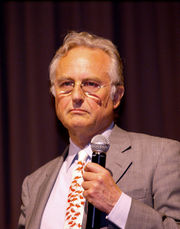
David Gorski at Scienceblogs wrote about atheist/skeptic organizations and financial mismanagement:
| “ | In any case, this makes me wonder: What is it about rationalist/skeptic groups that make them seemingly have such a hard time running their organizations well from a financial standpoint? After all, just a couple of months ago the Center for Inquiry (CFI) sent out letters desperately begging for more contributions. The reason was that CFI had one large benefactor whose yearly contribution funded approximately 20-25% of the yearly CFI budget. As clueless as I may be about finances, even I know that you don’t use such donations to run the operating expenses of an organization, because you can’t count on them from year to year and it’s too big a chunk. You use this money for special short-term projects and a rainy day fund. Not surprisingly, when this mysterious donor stopped donating earlier this year, suddently CFI was in deep doo-doo from a financial standpoint, prompting the desperate plea for donations and deep budget cuts. I realize that the down economy has played havoc with many nonprofit and charitable organizations, but these issues with skeptical organizations seem to go beyond just that.[82] | ” |
Secular Student Alliance report of fundraising problems[edit]
In October 2015, the Secular Student Alliance tweeted that it "desperately" needed $100,000 by the end of the month. The SSA Executive director August Brunsman reported that fundraising had lagged.[83]
[edit]
See also: Atheism and universities
According to the website Inside Philanthropy:
| “ | Universities lack the kind of entrenched atheist architecture—endowments, departments, conferences and the like—that religious studies departments have enjoyed for centuries.
What's more, there are several major funders who've put muscle behind religious scholarship on campus, such as the Lilly Endowment and the Templeton Foundation. But we've never seen a gift for related to aethism [sic] — either on a campus or elsewhere. Nor have our data gathering friends the Foundation Center, which reports exactly zero grants related to atheism in a database covers tens of foundations. (That said, some grants have gone to groups that put forth a "secular" agenda.)[84] |
” |
Atheist organizations and scandals[edit]
See also: Atheist organizations and scandals
Australian atheist movement and the cancellation of 2018 Global Atheist Conference[edit]
See also: 2018 Global Atheist Convention that was cancelled and Atheist movement and Atheist feminism
The 2018 Global Atheist Convention that was cancelled was billed as the third Global Atheist Convention and its theme was "Reason to Hope".[85][86] It was sponsored by the Atheist Foundation of Australia.[87]
Robert Martin from Melbourne’s City Bible Forum indicated about the cancellation of the 2018 Global Atheist Convention: "This is a massive blow to the Atheist Foundation as an organisation and to organised atheism in Australia. Where to next? What do they stand for?”[88] According to Martin, fragmentation within today's atheist movement in Australia is a key reason that the convention may have been difficult to sell (see also: Atheist factions).[89]
David Silverman scandal[edit]
See also: Atheist organizations and scandals and Atheist hypocrisy
David Silverman served as the President of the American Atheists organization. [90] Silverman was fired due to allegations of financial conflicts and sexual assault.[91] In his book, Fighting God, Silverman indicates that he is a “proud feminist.”[92] See also: Atheism and sexism
Concerning Silverman's scandals and subsequent firing, atheist and feminist PZ Myers said, "It's a terrible day for organized atheism."[93] Myers spent $1200 for a lifetime membership with American Atheists because he was impressed by the way Silverman went after the “anti-feminist” atheists.[94]
[edit]
YouTube atheist Cult of Dusty on the atheist community[edit]
See also: Atheist Alliance International's hiring of David Silverman and Firing of David Silverman from the American Atheists organization
On December 9, 2019, in a video about David Silverman, who is being accused of inappropriately touching several women (see: Atheist Alliance International's hiring of David Silverman), the atheist YouTuber Cult of Dusty said the atheist community is "cringe" and he doesn't want to have anything to do with it anymore.[95]
Atheist Francois Tremblay[edit]

See also: Atheist factions
The atheist Francois Tremblay wrote in his essay Herding Cats: Why atheism will lose:
| “ | Atheism, as commonly defined by atheists, expresses a lack of belief, or disbelief, in deities. It is not a positive belief in anything, but a negative concept. That is why atheists, inasmuch as they are atheists, are nothing like a coherent or concerted group. Organizations like American Atheists serve a role of broadcasting information more than anything else, because there cannot be concerted action when nobody agrees on what to do (except of course on direct concerns like the rights of atheists or separation of church and state). Most atheists disagree strongly on whenever atheism should be propagated, or promoted, and on the matter of doing so.
Another problem of atheism qua atheism is that it does not contain its own basis. What I mean by this is that atheism is a punctual, ontological belief, which is itself the implicit or explicit result of metaphysical and epistemological deductions. Any reply to an attack on this basis cannot come directly from atheism. Concentrating oneself only on being an atheist is like trying to build a house from the second floor up. It may look less costly on paper, and for people who only build houses in their imagination this may be a good way of seeing it, but it's not good enough for a serious endeavour. And most importantly, it's too fragile. I see too many religionists attacking atheism from the bottom and atheists being unable to adequately reply to the arguments. If the atheist cannot answer to his most fundamental beliefs on the nature of reality and cognition, then his atheism is worthless in terms of validation. It is nothing more than a big paper tiger, made from the finest cardboard. One last problem that undermines any propagation of atheism is inspiration. Let's be honest here, "there is no god!" is not a very motivating call for most people.[97] |
” |
Atheist Martin S. Pribble[edit]
The atheist activist Martin S. Pribble wrote in 2011:
| “ | ... I am beginning to feel that the atheistic movement is treading water somewhat, not really making much change in the world. It seems to me it is more akin to beating ones head against an immovable object rather than spreading encouragement for people to learn... Nothing is changing, and I doubt if we will ever see a single mind change from an engagement on Twitter over whether the Bible is the true word of God.
I feel we are lacking focus... I know I’m not the only person who realises this. I have seen a few people finding the fight a disillusioning experience...[98] |
” |
In 2013, Pribble wrote in Slate:
| “ | For the last five years I have considered myself an “activist atheist.”...
But I’m through with it, and I no longer want to be part of the online atheist “community.”... The times of satisfaction are outweighed by feelings of frustration and hopelessness... There is no point in it. All this back-and-forth sniping serves to do is to make us feel a sense of superiority to the person making the claims and does nothing for them except leave them with a smugness about their assumption that “atheists are all mean.”... Atheists and nonbelievers make up such a small part of the world’s population that we can never hope to change the world by ourselves—certainly not, if our primary weapon is yelling at people we don’t agree with. Most theists in the world are not completely delusional...[99] |
” |
2019 Freethought Blogs commentary on the atheist movement[edit]
In 2019, atheist support for the atheist movement is unenthusiastic, lackluster and halting. A contributor at Freethought Blogs in a post entitled In (reluctant) defense of the atheist movement wrote "Yes, the atheist movement is terrible, but no it has not always been so, and is not wholly so."[100]
Atheist movement likened to a sinking ship[edit]
See: Atheist movement likened to a sinking ship
Quotes[edit]
See also: Atheism quotes
"Atheism, I think, is a weird movement. I don't know if we can even call it a movement. To have a movement, you must have followers. And atheists are not followers." - Dan Barker, co-founder of the Freedom From Religion Foundation[101]
See also[edit]
Essays:
- Essay: Why the atheist movement is a lost cause
- July 2, 2011: The day the atheism movement died on the information superhighway
External links[edit]
- Whatever Happened to Atheists? by Gene Veith
- The future of American atheism is bleak
- Another sign the atheist movement in America has imploded: Cancelled atheist conferences
Notes[edit]
- ↑ Berlinerblau, Jacques (February 4, 2011). "Obama at the National Prayer Breakfast". The Chronicle of Higher Education/Brainstorm blog. Retrieved on May 29, 2015.
- ↑
- The “Atheism Movement:” Dead or Alive?, Freethought Blogs
- Atheist activist Seth Andrews keeps seeing reports on social media and the media that the atheist movement is dying, Examining Atheism
- Atheist Aron Ra indicates the atheist movement is dead. Now that that Aron Ra has surrendered...., Examining Atheism
- The Day the Atheist Movement Died by Jack Vance at Atheist Revolution
- Jennifer McCreight on Twitter about the Elevatorgate scandal destroying the atheist movement, Jen McCreight, Twitter
- The ghost of atheist past, Freethought Blogs, 2015
- ↑ The ghost of atheist past, Freethought Blogs
- ↑ I don’t even know what’s going on in atheism anymore by PZ Myers
- ↑
- The Day the Atheist Movement Died by Jack Vance at Atheist Revolution
- Jennifer McCreight on Twitter about the Elevatorgate scandal destroying the atheist movement, Jen McCreight, Twitter
- ↑ Ten years after Elevatorgate | What we should learn from our past mistakes by Thomas Sheedy, Atheist for Liberty website, June 3, 2021
- ↑ Reasonably Controversial: How the Regressive Left Is Killing the Atheist Movement by David Smalley
- ↑ Reasonably Controversial: How the Regressive Left Is Killing the Atheist Movement by David Smalley
- ↑ Get Out! A message for the atheist movement by PZ Myers
- ↑ The Atheist Conference is Dead
- ↑ Atheist Activists Lament a Movement in “Shambles” by David Klinghoffer
- ↑ Atheist Activists Lament a Movement in “Shambles” by David Klinghoffer
- ↑ The Atheist “Movement” Isn’t Dead Because There Never Was One by HEMANT MEHTA
- ↑ The “Atheism Movement:” Dead or Alive?, Freethought Blog
- ↑ Atheism is pretentious and cowardly by Dr. Theo Hobson
- ↑ http://www.colorado.edu/philosophy/vstenger/battle.html
- ↑ Richard Dawkins has lost: meet the new new atheists by Theo Hobson
- ↑ Gordon Stein, Encyclopedia of Politics and Religion, 74.
- ↑ Atheists & Agnostics in America Tend to be Politically Liberal
- ↑ Marxism. University of Cambridge (2008). Retrieved on 2011–03–15. “The most notable spread of atheism was achieved through the success of the 1917 Russian Revolution, which brought the Marxist-Leninists to power. For the first time in history, atheism thus became the official ideology of a state.”
- ↑ James Adair (2007). Christianity. JBE Online Books. Retrieved on 2011–03–15. “Although the Civil Constitution called for religious liberty, which was extended to Jews as well as Christians, many revolutionaries pushed for the establishment of a new state religion, either the Cult of Reason (atheists) or the Cult of the Supreme Being (Deists). Changes toAlthough the Civil Constitution called for religious liberty, which was extended to Jews as well as Christians, many revolutionaries pushed for the establishment of a new state religion, either the Cult of Reason (atheists) or the Cult of the Supreme Being (Deists). Changes to the calendar eliminated references to Christian holidays, and even the ancient seven-day week, and a ist of officially recognized saints included such famous thinkers such as Socrates, Jesus, Marcus Aurelius, and Jean-Jacques Rosseau. A period of political persecution, often with religious overtones, broke out, known as the Reign of Teror. Thousands of people were executed by the guillotine, including many of the original leaders of the French Revolution.”
- ↑ William Belsham (1801). Memoirs of the reign of George III. to the session of parliament ending A.D. 1793, Volume 5. G.G. & J. Robinson. Retrieved on 2011–03–15. “Reign of this portentous period, it has been eloquently tenor, and energetically observed, " that the reign of atheism in France was avowed the reign of terror. In the full madness of their career, in the highest climax of their horrors, they shut up the temples of God, abolished His worship, and proclaimed death to be an eternal sleep:-in the very centre of Christendom, Revelation underwent a total eclipse, while atheism, performing on a darkened theatre its strange and fearful tragedy, confounded the first elements of society, blended every age, rank, and sex ,indiscriminate proscription and massacre, and convulsed all Europe to its centre, that the imperishable memorial of these events might teach the last generations of mankind to consider religion as the pillar of society, the parent of social order, and the safe-guard of nations." It is wonderful that, amid the horrors of this dismal period, while "the death dance of democratic revolution" was still in rapid movement, among the tears of affliction, and the cries of despair, "the masque, the song, the theatric scene, the buffoon laughter, went on as regularly as in the gay hour of festive peace."”
- ↑ William Kilpatrick (2012). Christianity, Islam, and Atheism: The Struggle for the Soul of the West. Ignatius Press. Retrieved on 2011–03–15. “Actually, it's helpful to think in terms of two Enlightenments: the Enlightenment that cut itself off from God. The former led to the American Revolution, the Declaration of Independence, the abolition of slavery, and the civil rights movement. The latter led to the French Revolution, the Reign of Terror, the suppression of church by state, and the godless philosophies of Marx and Nietzsche and their offspring-National Socialism and communism. More recently the abandonment of God has led to the regime of cultural relativism that regards rights as arbitrary constructions. It's this second Enlightenment tradition that Cardinal Ratzinger referred to when he wrote, "The radical detachment of the Enlightenment philosophy from its roots ultimately leads it to dispense with man." Actually this transition happened no "ultimately" but almost immediately. The first instance occurred when Enlightenment worship of abstract "reason" and "liberty" degenearated quickly into the mass murders committed during the antireligious Reign of Terror in France. "Liberty, what crimes are committed in your name", said Madam Rolande as she faced the statue of Liberty in the Place de la Revolution movements before her death at the guillotine. She was one of the early victims of a succession of secular systems based on rootless notions of "liberty", "equality", and "reason". As many historians have pointed out, the atheist regimes of modern times are guilty of far more crimes than any committed in the name of religion. Communist governments alone were guilty of more than one hundred million murders, most of them committed against their own people.”
- ↑ Poisoning of a movement by PZ Myers
- ↑ Atheist Ireland publicly dissociates itself from the harmful and hateful rhetoric of PZ Myers by Michael Nugent, April 7, 2015
- ↑ Reflections on the skeptic and atheist movements By Massimo Pigliucci Scientia Salon, Posted: May 13, 2015
- ↑ Bainbridge, William (2005). "Atheism" (PDF). Interdisciplinary Journal of Research on Religion. 1 (Article 2): 1–26.
- ↑ Dealt a body blow, atheists and humanists regroup by Kimberly Winston, Religion News Service, November 9, 2016
- ↑ David Silverman - How the Mighty Get Back Up
- ↑ These 6 Cases Show How Brett Kavanaugh Might Rule on Religious Freedom, Daily Signal, 2018
- ↑ Neil Gorsuch Has a Record of Protecting Religious Minorities, Time magazine, 2017
- ↑ Global Study: Atheists in Decline, Only 1.8% of World Population by 2020
- ↑ 97% of the world's population growth is taking place in the developing world, where 95% of people are religious, Tuesday, April 30, 2013
- ↑ Shall the religious inherit the earth - Festival of Dangerous Ideas - Eric Kaufmann
- ↑ Global Study: Atheists in Decline, Only 1.8% of World Population by 2020
- ↑ Globally the worldviews of atheism and non-religious (agnostic) are declining while global Christianity is exploding in adherents
- ↑ Gordon-Conwell Theological Seminary - Status of Global Missions
- ↑ Thriving Christianity
- ↑ Atheism is Rising, But…, American Interest
- ↑ Where does the Secular movement go from here?: Panel Discussion at Reason in the Rock 2013, YouTube video
- ↑ Nearly 50% are of no religion – but has UK hit ‘peak secular’?, The Guardian, 2017
- ↑ British academic Eric Kaufmann says "the rate of secularisation has flattened to zero in most of Protestant Europe and France".
- ↑ The Church Is Under Siege. But Habermas, the Atheist, Is Coming to its Defense
- ↑ Jurgen Habermas on the Vision of a Post-Secular Europe, Modern Diplomacy
- ↑ Berlinerblau, Jacques (February 4, 2011). "Obama at the National Prayer Breakfast". The Chronicle of Higher Education/Brainstorm blog. Retrieved on May 29, 2015.
- ↑ Even atheists bash 'Reason Rally'
- ↑ Whoever I Don’t Like Is Ruining the Atheist Movement by Jeremiah Traeger
- ↑ Reasonably Controversial: How the Regressive Left Is Killing the Atheist Movement by David Smalley
- ↑ #ReasonRally Crash n burn. Thanks SJWs! by Thunderf00t
- ↑ Reasonably Controversial: How the Regressive Left Is Killing the Atheist Movement by David Smalley
- ↑ Uproar Against Dawkins Is Sign of New Atheism Retrogression by Joshua Kelly
- ↑ Feeling Disillusioned With the Atheist Movement, Atheist Revolution
- ↑ [Is the Atheist Movement Really Moving?], Atheist Revolution
- ↑ Is the Atheist Movement Dying? by Seth Andrews
- ↑ Atheist activist Seth Andrews keeps seeing reports on social media and the media that the atheist movement is dying. Examining Atheism
- ↑ They Tried to Start a Church Without God. For a While, It Worked., The Atlantic, 2019
- ↑ John Gray interview: how an English academic become the world’s pre-eminent prophet of doom, The Telegraph, By John Preston, 6:30AM GMT 28 Feb 2013
- ↑ What scares the new atheists by John Gray, The Guardian
- ↑ quoted in Summary of reviews - see also summaries of reviews in several other publications
- ↑ Atheists Speak Up - Eddie Tabash
- ↑ Atheists Speak Up - Eddie Tabash - Part 2 of 4
- ↑ Eddie Tabash: Speech and Q&A at AAI 07
- ↑ Shall the religious inherit the earth? - Eric Kaufmann
- ↑ An Atheist Walks into a Christian Meeting about Atheism by Kevin Davis
- ↑ The Atheist Disillusionment - PZ Myers, September 27, 2014
- ↑ Atheism seems to be amazingly doomed by PZ Myers
- ↑ AronRa Claims Mythcon Killed The Atheist Movement || Facebook Comments
- ↑ Former 2012 web page at Atheist.org website entitled "An Open Letter from Blair Scott"
- ↑ Former 2012 web page at Atheist.org website entitled "An Open Letter from Blair Scott"
- ↑ Reasonably Controversial: How the Regressive Left Is Killing the Atheist Movement by David Smalley
- ↑
- Richard Dawkins: Skeptic of women? - Salon, July 8, 2011
- Sharing a lift with Richard Dawkins by David Allen Green - New Stateman - 06 July 2011
- Richard Dawkins Torn Limb From Limb—By Atheists - Gawker
- Atheists address sexism issues - USA Today
- Richard Dawkins, check the evidence on the 'chilly climate' for women by Emily Band, The Guardian, July 24, 2011
- Richard Dawkins and male privilege By Phil Plait, Discover Magazine, July 5, 2011 10:30 am
- Is Richard Dawkins destroying his reputation? by Sophie Elmhirst, The Guardian, June 9, 2015
- ↑ Rebecca Watson (July 5, 2011). "The Privilege Delusion". Skepchick
- ↑ Jennifer McCreight on the Twitter about the Elevatorgate scandal
- ↑ The Day the Atheist Movement Died by Jack Vance at Atheist Revolution
- ↑ Lee Moore and Steve Shives Talk About the Future of the Atheist Movement, - video quote comes 21 minutes and 13 seconds into the video
- ↑ Foundation Beyond Belief
- ↑ A Few Thoughts About Fundraising
- ↑ Interview – Pat O’Brien on Humanism in Canada and British Columbia by Scott Jacobsen, Conatus News, 2016
- ↑ Richard Dawkins Drops His Lawsuit Against Former Employee
- ↑ Richard Dawkins sues Josh Timonen, Posted by David Gorski on October 24, 2010
- ↑ Richard Dawkins Drops His Lawsuit Against Former Employee
- ↑ Richard Dawkins sues Josh Timonen, Posted by David Gorski on October 24, 2010
- ↑ Eberhard, JT (30 May 2016). "Secular Student Alliance running a 'desperate' fundraiser". WWJTD.
- ↑ [Beyond Belief: As Americans Warm to Atheism, Will Donors Follow?] by Mike Scutari, Inside Philanthropy
- ↑ AFA Media Releases & Announcements
- ↑ AFA Media Releases & Announcements
- ↑ AFA Media Releases & Announcements
- ↑ Global Atheist Convention cancelled due to lack of interest, Eternity News
- ↑ Global Atheist Convention cancelled due to lack of interest, Eternity News
- ↑ http://www.atheists.org/about/Board_of_Directors
- ↑ This Firebrand Atheist Was Just Fired After Allegations Of Financial Conflicts And Sexual Assault
- ↑ David Silverman was a “Proud Feminist”
- ↑ David Silverman fired from American Atheists by PZ Myers
- ↑ David Silverman was a “Proud Feminist”
- ↑ David Silverman Accused Of "Creepy Touching" Again! Plus 50 Other topics! (CODcast 78)
- ↑ Herding Cats: Why atheism will lose by Francois Tremblay
- ↑ Herding Cats: Why atheism will lose by Francois Tremblay
- ↑ Is the atheist movement dead on the water?
- ↑ Leaving the Tribe by Martin Pribble
- ↑ In (reluctant) defense of the atheist movement, Freethought blogs
- ↑ Dan Barker "Outspoken Atheists: Help or Hindrance to the Secular Movement?"
Categories: [Atheism]
↧ Download as ZWI file | Last modified: 02/27/2023 04:48:25 | 6 views
☰ Source: https://www.conservapedia.com/Decline_of_the_atheist_movement | License: CC BY-SA 3.0
 ZWI signed:
ZWI signed: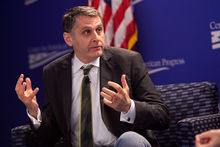


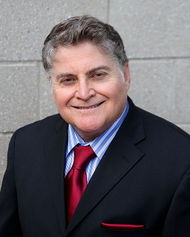
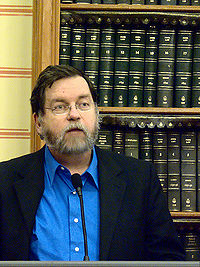
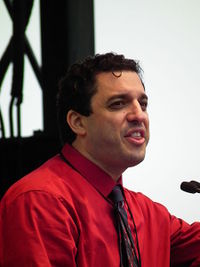
 KSF
KSF